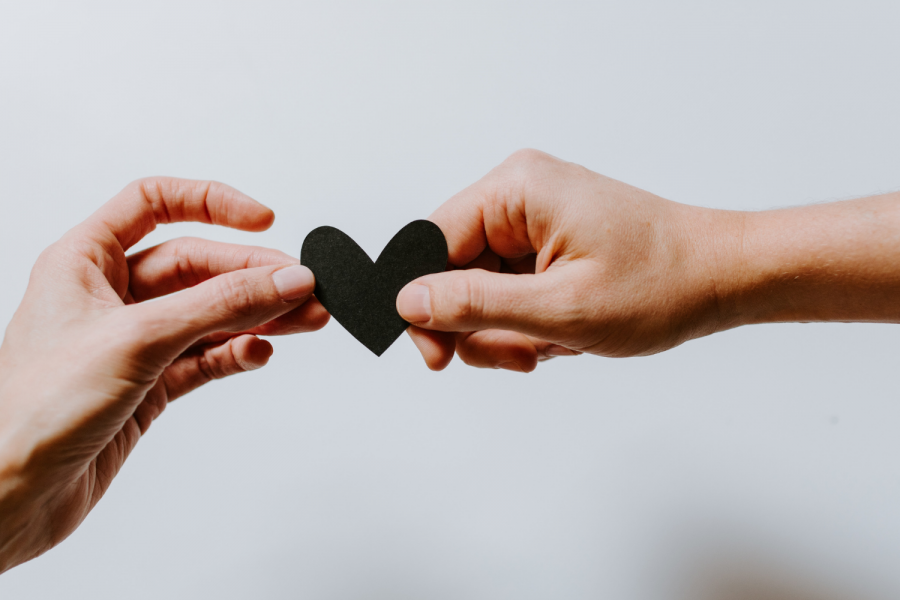Photo courtesy of Kelly Sikkema via Unsplash
Healthy relationships are communicative, respectful, and honest
Identifying and Limiting Toxic Relationships
You only have one life, let’s make sure it’s filled with people who make you happy
January 31, 2021
Think of your tightest friendship or a current romantic one. Are you smiling, laughing, and feeling free to be yourself? Or is your energy constantly drained, receive backhanded compliments, and spending time ragging on another friend? If it’s the latter, you’re not alone; we all feel you. Sometimes relationships turn that way regardless of how they started.
Platonic relationships, which revolve solely around friends, and romantic, are the most common connections, according to Dr. Adria O’Donnell, a licensed clinical psychologist who specializes in adolescence has seen her fair share of toxic relationships. Dr. O’Donnell says that “typically it is between two girls where one feels desperate for the friendship” and one winds up acting submissive. Usually, girls feel uncomfortable being mean to each other, especially with friends. With these situations, the friend turns into more of a “frenemy,” meaning someone with who you have a love-hate relationship.
On the opposite side of the spectrum, a typical toxic romantic relationship is when a partner doesn’t set boundaries. Instead, they search through their significant other’s phone, stalk them on social media, and continuously want all of their attention. If you’re in a romantic relationship that gets “leechy” like this, it’s best to hold off and find someone who respects personal space. Boundaries are crucial in a stable relationship, both romantic and platonic.
Fear tricks us into thinking we have no choices
— Dr. O'Donnell
Dr.O’Donnell says it’s essential to immerse yourself in other social circles when recognizing an unhealthy relationship. Having a few separate friends makes it’s easier to see the difference between a group that is uplifting versus a group that brings you down. “Sometimes you have to rely on other people to point out [that we are in] an unhealthy relationship. Friends in different circles can sometimes notice how much we change our behavior. Rely on third parties to keep you in check,” Dr. O’Donnell said. Joining separate groups with different personality traits can emphasize how you react around them and highlight the negative relationships.
From Dr.O’Donnell’s experience, while working with teens, she finds “the number one emotion that keeps everybody in a bad relationship is fear. Always.” Typically people are afraid their friend or partner will get mad at them, coupled with the fear of being alone, which makes them wind up opting to stay in a negative relationship. “Fear tricks us into thinking we have no choices,” she said.
In general, it is crucial to think of it this way: it is better to be alone and happy than sociable and sad. Although the fear may make you second guess yourself, getting out of that toxic relationship makes way for opportunities to be in a sturdy one.
All in all, we have one life, and it’s nice to spend as much time as possible being around people who accept us just the way we are and push us to be our best selves.

